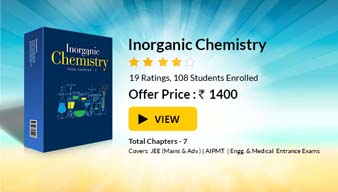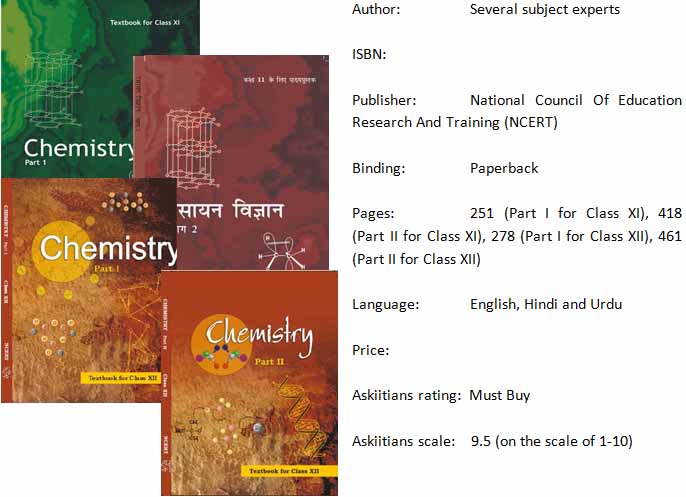NCERT Inorganic Chemistry is the Bible for JEE preparation!
 NCERT Chemistry Class 11 and NCERT Chemistry Class 12 books are the Bible for the JEE preparation, other engineering entrance exams, medical entrance exams as well as board exams for Class 12. The books have been written quite well, with best-possible explanations, and are nice to read. Students should devote maximum time of Chemistry preparation to these books.
NCERT Chemistry Class 11 and NCERT Chemistry Class 12 books are the Bible for the JEE preparation, other engineering entrance exams, medical entrance exams as well as board exams for Class 12. The books have been written quite well, with best-possible explanations, and are nice to read. Students should devote maximum time of Chemistry preparation to these books.
The National Council of Educational Research and Training (NCERT) designs books based on the school syllabus prescribed by the Central Board of Secondary Education (CBSE). They are simple, take a practical approach to explain theory and concepts and have adequate depth of coverage.
NCERT Chemistry books clearly define concepts and theories and include a lot of exercises and practical activities to reinforce them. Solutions to some of these exercises are given.
Topics covered in NCERT Chemistry Class 11 Part 1 are:
-
Some Basic Concepts of Chemistry
-
Structure of Atom
-
Classification of Elements and Periodicity in Properties
-
Chemical Bonding and Molecular Structure
-
States of Matter
-
Thermodynamics
-
Equilibrium
Topics covered in NCERT Chemistry Class 11 Part 2 are:
-
Redox Reactions
-
Hydrogen
-
The s-Block Elements
-
The p-Block Elements
-
Organic Chemistry – Some Basic Principles and Techniques
-
Hydrocarbons
-
Environmental Chemistry
Topics covered in NCERT Chemistry Class 12 Part 1 are:
-
The d-and f-Block Elements
-
Coordination Compounds
Topics covered in NCERT Chemistry Class 12 Part 2 are:
-
Haloalkanes and Haloarenes
-
Alcohols, Phenols and Ethers
-
Aldehydes, Ketones and Carboxylic Acids
-
Amines
-
Biomolecules
-
Polymers
-
Chemistry in Everyday Life
NCERT Chemistry books fully cover JEE syllabus. Topics best covered in NCERT Inorganic Chemistry syllabus are Preparation and Properties of Non-metal, Transition Elements, Ores and Minerals, Extractive Metallurgy and Group Analysis.
However, the NCERT books lack detailed explanation of problem questions and students may want to refer to other books for practicing problems.
Other Inorganic Chemistry books you may want to buy are:
View courses by askIITians


Design classes One-on-One in your own way with Top IITians/Medical Professionals
Click Here Know More

Complete Self Study Package designed by Industry Leading Experts
Click Here Know More

Live 1-1 coding classes to unleash the Creator in your Child
Click Here Know More


